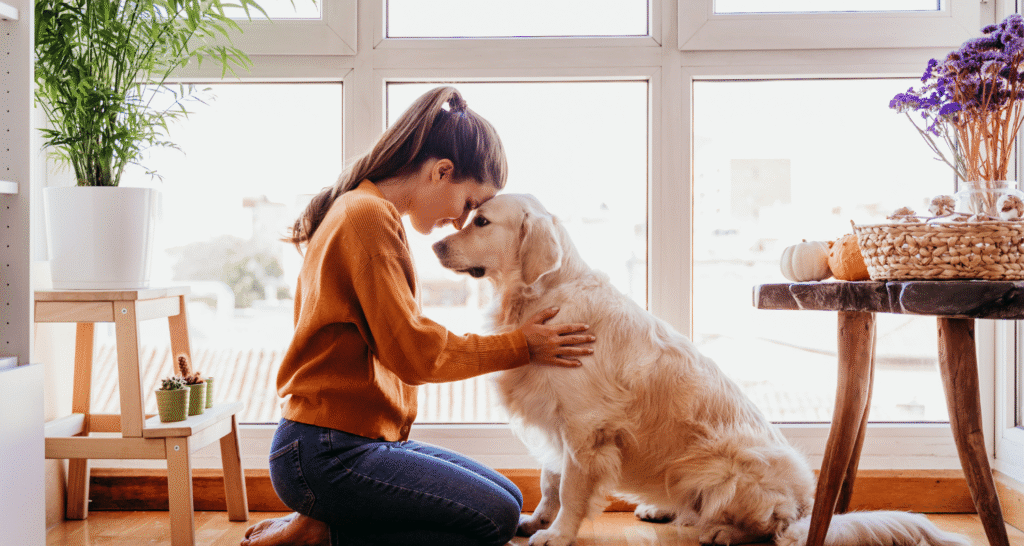When the Little Things Feel So Loud
When a pet dies, life feels different in so many ways, and some expected, some unexpected. Your daily anchors may feel adrift – you may find yourself waking up to prepare your pet’s breakfast, automatically reaching for the leash, or wondering what to do in the early evening when you went on that nightly walk. Beneath these moments lies a deeper shift: a subtle unraveling of routine and identity that leaves many pet parents feeling unmoored. This kind of grief isn’t obvious to others, but it’s powerful and very real.
Routines and Identity
Pets often stabilize our days, creating structure that we came to depend on. Losing that structure can make your day feel aimless, especially in the early stages—and that aimlessness can intensify grief. A pets’ absence can leave us feeling empty,, even purposeless—especially if we live alone and don’t have a lot of social connections to turn to.
Beyond routines, we form part of our identity through the roles we play—we are partners, friends, pet parents. And for some of us, being a pet parent is a primary identity. The author Pauline Boss calls this our relational identity: the way we relate to others shapes who we believe ourselves to be. Losing a pet can deeply disrupt that role, leaving you asking, “Who am I now?” and then, “Who will I be?”
If your social life revolves around your pet – walking groups, play dates, dog park visits – that shift isn’t just emotional—it reshapes how you view yourself in the world, and in some cases how the world relates to you.
Intangible Loss: The Invisible Ripples of Grief
Grief after pet loss isn’t only about losing life—it’s about losing the subtle ways your pet enriched your world. This is known as intangible loss—the unseen impacts that can deeply shake our sense of comfort, connection, and self. These may include:
- Losing your role as caregiver
- Feeling untethered without their presence
- Losing informal social ties—like neighbors seen during walks
This loss often goes unspoken, yet its effects are profound.

How to Gently Rebuild When Identity and Routine are Upended
Here are some possible nurturing strategies to help you find some footing again:
- Recognize the Ripple Effects
Know it’s not just the loss of your pet—it’s the absence of what they brought to your life. Naming that—routines, roles, comfort—can help you understand your grief more deeply. - Explore Who You Are Without Them
It’s okay to grapple with a changed identity. Reflect with curiosity: “Who do I want to be now that this part of me has changed?” Be gentle with yourself as you explore that new version, allowing for patience and time for the unfolding to happen. - Lean into Community and Understanding
Look for grief-aware spaces—coaches, counselors, support groups, online communities—where the silent loss of routine and identity is validated, not minimized. - Embrace Ongoing Tribute, Not Closure
While your pet is gone, your relationship is not! Aim for acknowledging your continuing bond—moving through this is not forgetting, but honoring. Photo albums, framed prints, or a memory corner can offer comfort and reinforce the bond that remains beyond daily rituals.
The Invisible Is Still Important
When a pet dies, it’s not just about loss—it’s also about the quiet shifts that ripple through how we live and who we feel we are. That ache in your routine and your identity is real, and it matters. With awareness, gentle rebuilding of daily life, and compassion for your evolving self, you can create a new normal—not erasing what was, but shaping something meaningful moving forward.
